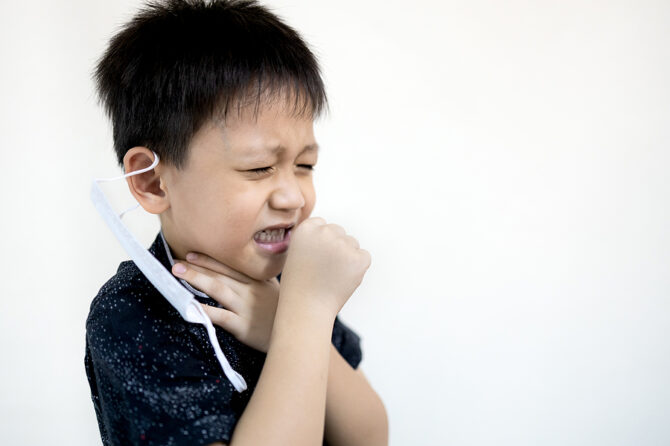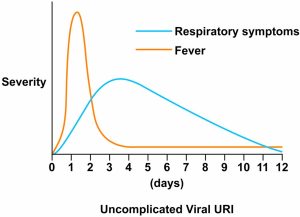
Will this cough ever go away?
By: Dr. Joseph Mechak [Repost from Dec 2019]
It has been a loooong respiratory seasons this year. This has meant lots of sniffles, sneezing, and seemingly endless cough. Cough can occur for a variety of reasons. Some are scary, like asthma, pneumonia, and bronchiolitis, but most during this time of year are either directly or indirectly related to one of these viral respiratory infections.
First, it is important to understand the expected course of your run-of-the-mill viral respiratory infection (ie. the common cold). A study performed by some great doctors at UVA (my old stomping grounds), showed that while fever, malaise (‘the feel bads’), and the brunt of symptoms from the common cold last 3-4 days, over 76% of children have 1 or more symptoms lasting 10 days or more [1]. Of those ‘lingering’ symptoms, congestion and cough were the most common. So it is important to shake those misconceptions that colds only last a few days – the data and our experience definitely say otherwise! Here is a great chart that summarizes this point:

What about after 10 days? Well, chances are that it is still viral. Some viral coughs will last 2…3…4 weeks or longer. We even give this type of lingering cough a (very creative) name… a post-infectious or post-viral cough. These coughs happen for two main reasons. First, mucus left over from the viral infection can be irritating and trigger a cough. Secondly, the body’s response to viruses causes inflammation. This inflammation is also irritating to the lining of the lungs and airways. These post-viral coughs are usually dry, worst at night, and typically not too bothersome. They, importantly, should not be associated with any fever, increased work of breathing, or any significant change in behavior or appetite. These kids will usually be acting totally normally with the exception of the nagging cough. The good news is these coughs are not dangerous and will get better…eventually. The bad news is that there is not much we can do to make them get better faster. Antibiotics and steroids are not helpful for this type of cough.
A few things that may be helpful for these viral or post-viral coughs are:
- Honey – Nature’s cough medicine is better than any from the drug companies. See our previous blog about cough medicine for more. (Important caveat! Honey should never be given to children under 1 year old because there is a risk of Botulism!)
- Nasal hygiene – Post nasal drip is a major component of viral and post-viral coughs. Cleaning out the nose and limiting the post-nasal drip can be very helpful. Nasal saline rinses a few times per day, blowing the nose instead of sniffling, nasal suction in younger kids, and humidifiers in the room at night can all really help.
- Hydration – Your body is working in overdrive to help clear away this infection and it needs more water than normal. Also, staying hydrated helps keep mucous moist and easier to clear.
Like we said at the start, coughs can happen for a number of reasons. Viruses are most common but there are more concerning causes out there like pneumonia, asthma, and many more. If you are ever worried or unsure – have you child evaluated in the office, we are here to help. A few signs that point to one of these more worrisome causes include:
- Fever – If your child has a fever for more than 3-4 days or if you child develops a new fever and worsening cough it could be a sign of pneumonia or ear infection.
- Increased work of breathing – This means breathing harder, breathing faster, or looking/feeling uncomfortable while breathing. This is unusual with a viral cough alone.
- Cough lasting more than 8 weeks – This would be unusual even for a post-viral cough. Sometimes, back-to-back infections can lead to seemingly endless cough, but if the cough has been there more than 8 weeks – we should probably take a listen to make sure nothing else is going on.
- Coughing fits – Some infections will cause severe coughing fits. These fits are very bothersome, distressful, and can cause vomiting or make kids pass out. If this is the case, please make an appointment so your child can be evaluated for whooping cough.
- If you are worried – We trust your parental intuition. If you think the cough does not fit the post-viral picture, bring them so we can evaluate.











Leave a reply